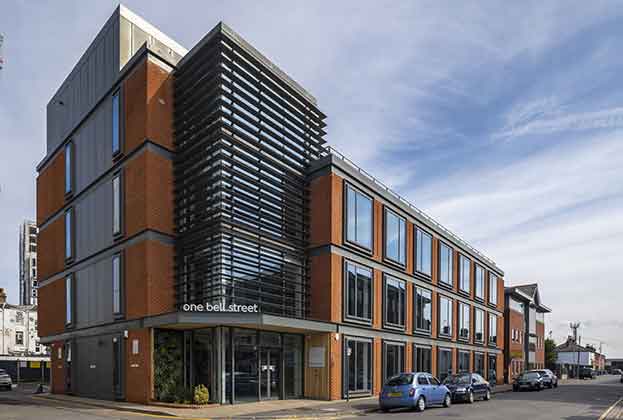Notwithstanding the fact that current political uncertainty has generated some cautiousness amongst companies when making long-term decisions, the European economy is still holding its own. GDP growth reached 0.3 per cent by the third quarter of 2018 and, as business assurance increases, we expect professional, scientific and technical employment growth in excess of 2.5 per cent in 2019 in countries including France, The Netherlands and Bulgaria.
The strength of the European economy is reflected twofold within the office sector: we’re seeing a scarcity in office stock and vacancy rates are hitting historic lows. The current average vacancy rate sits at 6.1 per cent across European cities, down from 6.9 per cent in 2017. Demand is ever increasing: 8.6 million sq m of office take-up is expected to have transacted in 2018 and 58 per cent of Q2 2019 European development completions are already pre-let. With annual average prime office rental growth up by 4 per cent across European cities in Q3 2018, landlords are in a strong position.
These accumulated influences, alongside new leasing standards which mean that serviced offices and lease terms under 12 months don’t need to be included on companies’ balance sheets, have forced businesses to re-evaluate their office strategies. With this has come the solution of the flexible office model.
Flexible offices accounted for approximately 8 per cent of total EU take-up in Q3 2018, up from 7.2 per cent in 2017. Serviced office operators have been extremely acquisitive, accommodating both large and small requirements and, with entities such as ‘HQ by WeWork’ and Knotel being created as options for medium sized businesses, we are starting to see the rise of the managed solution.
Flexi space around Europe
- Paris has seen flexible office operators lease more than 70,000 sq m since the beginning of 2018, both in the CBD and the outskirts.
- In Dublin, companies considering the macroeconomic uncertainty, coupled with the accounting changes and sharp influx in US corporates and technological firms, have opened the floodgates on the flexible office sector. In the first three quarters of 2018, serviced options accounted for 13.5 per cent of total take-up.
- In Brussels, there has been strong take up of flexible office space in Q3 with over 16,000 sq m transacted during the quarter (or 29 per cent of total leasing activity) driven by Multiburo, Regus and Spaces. 68 per cent of all transactions were led by small requirements up to 500 sq m – a market characteristic that supports the demand and expansion of flexible office space.
- With expanding operators offering such flexibility of service for a wide range of size requirements, pressure is being exerted on traditional landlords to offer a similar service in order to stay competitive in the market. Tenants opting for flexible offices are likely to continue on an upward trend especially in markets with limited supply and low vacancy rates –Berlin and Paris – where the volatility of Brexit impacts business strategy – London and Dublin – and where ICT sectors are rapidly expanding – Madrid and Stockholm. Arguably, flexible office strategies are becoming a strategic ‘fix’ ahead of traditional alternatives.
Further information
Read more: Spotlight: European Offices





.jpg)

.jpg)
.jpg)

(1).jpg)